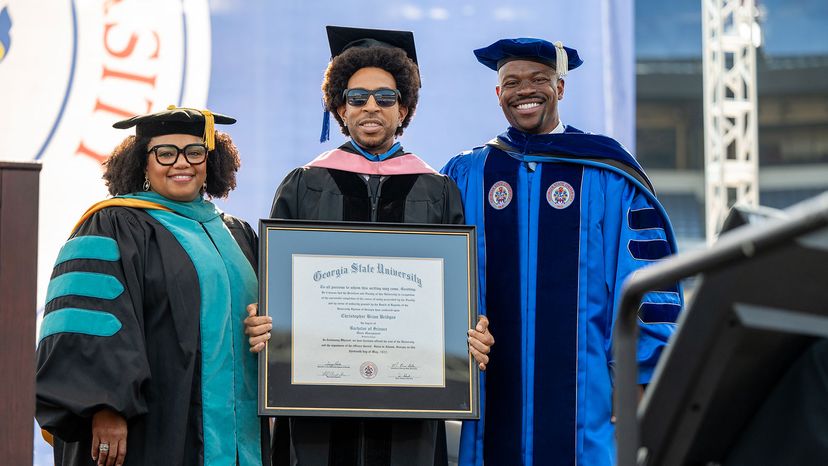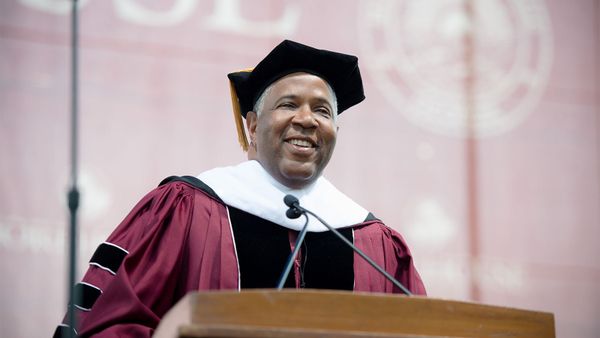
It's graduation season in America. And as proud college students and their parents crowd into sun-drenched football stadiums for two hours of speechmaking and endless loops of "Pomp and Circumstance," they could be forgiven for wondering why 30 minutes of their long-awaited graduation ceremony is taken up by wealthy donors, obscure academics and the occasional rapper in ceremonial robes accepting phony degrees.
The annual collegiate tradition of conferring honorary degrees has a long history and its fair share of critics, including Thomas Jefferson, who forbade the University of Virginia (UVA), which he founded in 1819, from handing out honorary degrees just to curry favor with bigshot businessmen and politicians. (That didn't stop Jefferson from happily accepting an honorary law degree from Harvard.)
Advertisement
Besides UVA, only MIT, Stanford and Cornell explicitly ban the practice of awarding honorary degrees in the U.S. William Barton Rogers, the founder of Massachusetts Institute of Technology (MIT) and a UVA alum, dismissed the practice of handing out honorary degrees as "unfriendly to true literary advancement" and "of spurious merit and noisy popularity."
For those universities that continue the practice, the upside of honorary degrees is obvious. As Arthur E. Levine, former president of the Teachers College at Columbia University told The New York Times in 1999, "Sometimes they are used to reward donors who have given money; sometimes they are used to draw celebrities to make the graduation special." Levine approved of honorary degrees, seeing them as teaching opportunities to"[show] examples of people who most represent the values the institution stands for."
Advertisement


